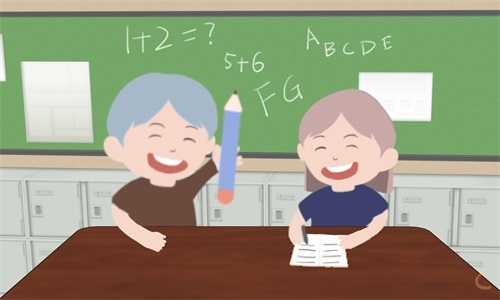初一下学期英语知识点总结
初一下学期英语知识点总结大全
要想学好英语,就必须学好英语知识点,鉴于此,应届毕业生考试网小编为大家整理了这篇初一下学期英语知识点总结,希望对大家以后在英语方面的学习上有所帮助。

初一下学期英语知识点总结
一、词组
want to do sth .想要做某事 want sb to do sth 想要某人做某事 want sth 想要某物
Let sb do sth 让某人做某事 kind of 有几分种类 a kind of 一种…
…years old …年龄like to do sth 喜欢做某事 like doing sth
play with …与...一起玩 during the day 在白天 at night 在夜间
have a look at.. 看... one…the other 一个...另一个...
二、句型与日常交际用语。
1、-why do you like pandas?/ -Why dose he like koalas? -Because they’re very cure.
2. Why do you want to see the lions? Because they’re …
3、-Where are lions from? -Lions are from South Africa.
4、-What (other) animals do you like? -I like elephants.
other+ 名词的复数.表示没有特定的数量范围
the other+名词的复数表示有特定的数量范围.
5.-Do you like giraffes? Yes, I do. / No, I don’t
初一下学期英语知识点总结大全
一、词组
want to be+a/an+职业 想要成为…shop assistant店员bank clerk银行职员work with 与…一起工作 help sb (to) do sth/sb with sth 帮助某人做某事 as…作为…
work hard 努力工作work for 为。。。而工作work as 作为。。而工作get.. from…从..获得…
give sth.to.sb /give.sb.sth 把某物给某人 in the day 在白天at night 在夜间talk to /with 与…讲话
go out to dinners 外出吃饭in a hospital 在医院newspaper reporter报社记者
movie actor 电影演员
二、句型
1.-What do/does+某人+do?例-What do you do?-I’m a student./-What dose he do? He’s a teacher.
2-What do/does+某人+want to be?例:What do you want to be?-I want to be a teacher.
3.-Where does your sister work? -She works in a hospital.
4.-Does he work in the hospital? Yes, he does/No, he doesn’t
5.-Does she work late? -Yes, she does/No, she doesn’t
6.-英语中询问职业的几种表达方式:
What do/does …do?/What is…? What is your father’s job? /What’s one’s job?
初一英语知识
(一)need和dare的用法
need和dare既可用作情态动词,也可用作实义动词。用作情态动词时,主要用于否定句和疑问句。用作实义动词时,可用于各种句式。
1.用作情态动词--Need I come? --Yes, you must. --我需要来吗? --需要。 You needn't telephone him now. 你现在不必打电话给他。
I don't think you need worry. 我想你不必发愁。
She dare not go out alone at night. 她晚上不敢一个人出去。
How dare you say I'm unfair? 你竟敢说我不公平?
Not one of them dared mention this. 他们谁也不敢提这件事。
2.用作实义动词You don't need to do it yourself. 你不必亲自做这件事。 We need to tell them the news. 我们需要把这消息告诉他们。
The table needs painting (to be painted.). 桌子需要油漆一下。
We should dare to give our own opinion. 我们要敢于提出自己的观点。
He did not dare (to) look up. 他不敢抬头看。
I dare day he'll come again. 我想他会再来的。(I dare say…为固定习语)
(二)情态动词后跟完完成这项工作的。
He isn't here. He must have missed the train. 他还未到,一定是没赶上火车。 Where can (could) he gone? 他能到那里去了呢?
You may (might) have read about it. 你可能在报上已经读到这件事了。 You could (might) have been more careful. 你本来可以更细心的。
He needn't have worried it. 他本不必为此事担心。
There was a lot of fun at yesterday's party. You ought to have come, but why didn't you? 昨天的聚会非常有意思。你本应该来,为何不来呢?
初一下册英语知识点总结归纳
学习目标
语言知识目标:
(1). Read the article in 3a fluently. Grasp the words and prases in the text.
(2). Write some past tense sentences, using the words and phrases in this unit.
(3). Talk about somebody’s vacation, using the sentences in this unit.
情感态度目标:
Know about good things and bad things. Learn how to face them.
Know about some places of interests in China. Let students
love our great motherland.
学习策略:
(1)主动预习,积极思考,记好笔记,在学习中大胆发言,学会运用所学知识。
(2)在课堂上,积极参与小组活动,自主学习,用多种方式完成学习目标。
2、重点难点
重点:语言知识目标 1、2、3
难点:语言知识目标 3
课后复习资料
一。短语
go on vacation
go to summer camp
stay at home
study for exams
Central Park
show sth to sb
help him find his father
walk back to…
go shopping
the Palace Museum
think of
have fun doing sth
bus trip
the Great Wall
Tian’an Men Square
.a Beijing Hutong
make sb do sth
.decide to do sth
all day
二、重点句子和注意事项
1.Where did you go on vacation? I went to summer camp.
Where did they go on vacation? They went to New York City.
Where did he go on vacation? He stayed at home.
Where did she go on vacation? She visited her uncle.
2. Did you/he/she/they go to Central Park?
Yes, I/he/she/they did. No, I/he/she/they didn’t.
3. How were the movies? They were fantastic
4. have fun doing something 干某事有乐趣 = enjoy oneself doing something
We have fun learning and speaking English .
We enjoy ourselves learning and speaking English . 我们学英语有很多乐趣 .
5. find sb. doing sth. 发现某人在干某事 find sb. do sth. 发现某人干过某事
I find him reading the novel (小说). I found him go into the room .
6. corner 角落,角,拐角处
in the corner 在角落里(指在建筑物里面)
at the corner 在拐角处(指在建筑物外面或道路的拐角)
My bike is at the corner .
7. be lost 迷路了=get lost , lost (adj.) The girl was lost in the big city .
8. help sb. (to) do sth.=help sb for sth 帮助某人干某事
He always helps us learn English
9. make sb. do sth. 让/使某人干某事 let / have sb. do sth. do前不带to
The movie makes me relaxing . Let the boy do his homework alone.
10. feel+ adj. 感到。 I feel hungry / tired /happy / excited
11. decide to do sth. 决定干某事 They decided to go to Hainan on vacation.
初一下册英语知识点总结
可数名词变复数
可数名词变复数时,有规则变化和不规则变化两种。
1、规则变化:
1)一般情况直接在词尾加“-s ”,如:cake-cakes, bag-bags, day-days, face-faces, orange-oranges等;
2)以s, x, sh, ch结尾的词,要在词尾加“-es ”,如:bus-buses, watch-watches, box-boxes等;
3)以辅音字母加y结尾的词,变y为i再加“-es ”,如:baby-babies, country-countries, family-families等;
4)部分以f (e)结尾的词,变f (e)为“ves ”,如:knife-knives, half-halves等;
5)以o结尾的词,加“-s ”或“-es ”,如:zoo-zoos, photo-photos, tomato-tomatoes, potato-potatoes等。记忆口诀:除了“英雄”hero外,凡是能吃的,加“-es ”,不能吃的加“-s ”。
2、不规则变化:
1)改变单数名词中的元音字母:man-men, woman-women, foot-feet, tooth-teeth等;
2)单、复同形:sheep-sheep, Chinese-Chinese, Japanese-Japanese等;
3)其他形式:mouse-mice, child-children等。
